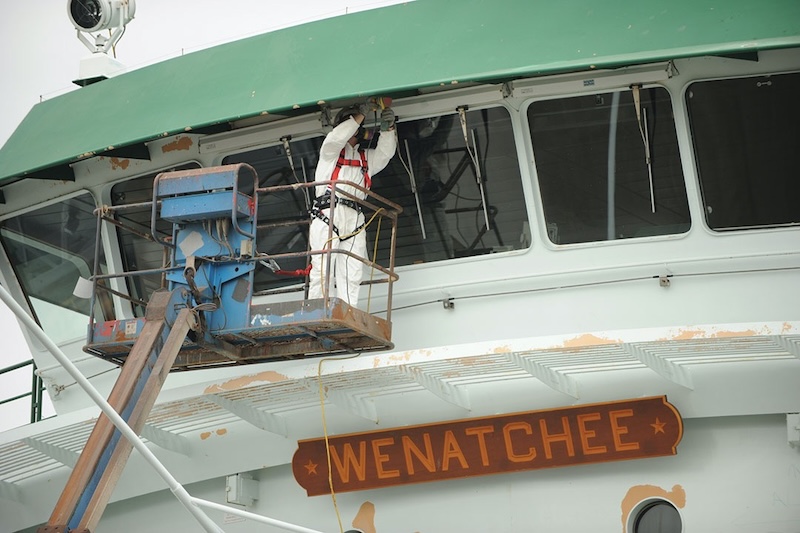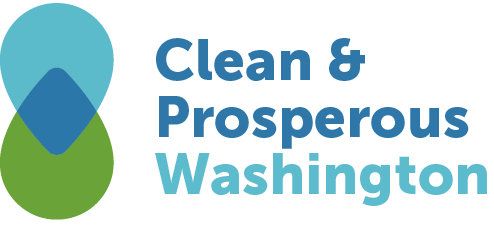Are ferries sailing into the Bermuda Triangle?
Though Washington State Ferries is the biggest ferry system in North America, few would currently describe it as the best. Over the past several years, vessel and staff shortages have left passengers stranded as scheduled sailings have been delayed or canceled.

Image created with Copilot Designer.
According to Representative Greg Nance, “WSF is down to 15 operational vessels — far below the 26 we need for full service — and over $250M behind in deferred maintenance for vessel upkeep, risking the early retirement of boats.”
John Vezina, WSF’s Director of Planning, Customer and Government Relations, said “There are three routes that are still unrestored. Fauntleroy-Southworth-Vashon, Seattle-Bremerton and then Port Townsend-Coupeville. We have significantly less service there.” According to Vezina, the Legislature has directed WSF to keep vessels going for 60 years, and that is an increasing challenge. “A lot of the boats we have you can no longer get parts for, and all credit to our Eagle Harbor maintenance facility colleagues,” Vezina said. “They often make parts to keep the boats running.”
Vezina went on to say, “We prioritize routes that are absolutely dependent on us, like the San Juans. We probably won’t be able to restore Anacortes-Sidney until 2030.”
So any sign of good news on the horizon is a welcome sight.
And there is good news: new leadership, new boats, and new funding.
WSF reports that under the new leadership of Steve Nevey, staffing gaps are being filled and on-time performance is improving. From January through April of 2023, WSF had more than 1,100 cancellations for lack of crew. “Same period this year, it’s 493,” Nevey said. “So, as we work our way out of our ferry crisis, we are seeing far fewer canceled sailings.”

Professional Mariner (Maritime Publishing)
New boats are on the way. In September the Jumbo Mark II Wenatchee is due to return to service as the first of five new hybrid-electric boats. Shipbuilder Vigor has begun work on the Wenatchee at its Harbor Island shipyard in Seattle. Vigor will begin work on the Tacoma next, with WSF having the option to extend the contract to convert a third boat, the Puyallup, in 2025.
Thanks to funding from the Climate Commitment Act, WSF will build 16 new vessels, convert 6 existing vessels, retire 13 vessels, and electrify 16 terminals (reducing operating costs, improving reliability, and clearing the air over Puget Sound and the San Juans).
The Washington State Standard reports, “Last month, the agency began a search for potential builders as Washington will accept bids from shipyards nationwide for the first time in more than half a century.” More good news: “To get boats delivered faster, the state is prepared to split the contract between two low bidders so that two shipyards could go to work simultaneously.”
Matt von Ruden, WSF’s System Electrification Program Administrator said WSF “is tackling the biggest emitters in our fleet first, the Jumbo Mark IIs, which contribute 26 percent of our ferries’ greenhouse gas emissions. When our terminals are electrified in 2026, we expect emissions from these three vessels to drop by roughly 95 percent.”

Hybrid-electric ferries are faster, lighter, and more fuel-efficient.
An analysis by the Clean & Prosperous Institute “aligns with previous findings that Washington State Ferries create significantly more public health damages than most other transportation fuels, and indicates that the public health and climate benefits alone are very likely to significantly outweigh the upfront costs even before fuel cost savings are included.”
But could bad news be on the horizon? There is a very real risk that the funding for these new ferries may disappear in the “Bermuda Triangle” of repeal. If the Climate Commitment Act is repealed (through executive, legislative, or initiative action), a massive source of funding vanishes.
Haven’t we been here before?
In 1999, voters approved Initiative 695, which repealed the state’s motor vehicle excise tax. After the state Supreme Court found that unconstitutional, the Legislature stepped in to cut the tax, eliminating a major funding source for Washington State Ferries. As a result, from 2000-2010, no new boats were built when the state should have been making a boat a year, according to Ian Sterling, WSF Director of Communications.
Now the Cap-and-Invest Climate Commitment Act is funding the ferries. Without it, ferry construction and conversion is at high risk, per this analysis from the Clean & Prosperous Institute:
All hands on deck. Too many sailings have been delayed or canceled. Will ferry funding be delayed or canceled too? To navigate these treacherous waters and make sure that ferries are fully funded, please share this Clean & Prosperous Institute “Risk of Repeal” Hybrid Electric Vessel Project Report with your network of fellow ferry friends.


